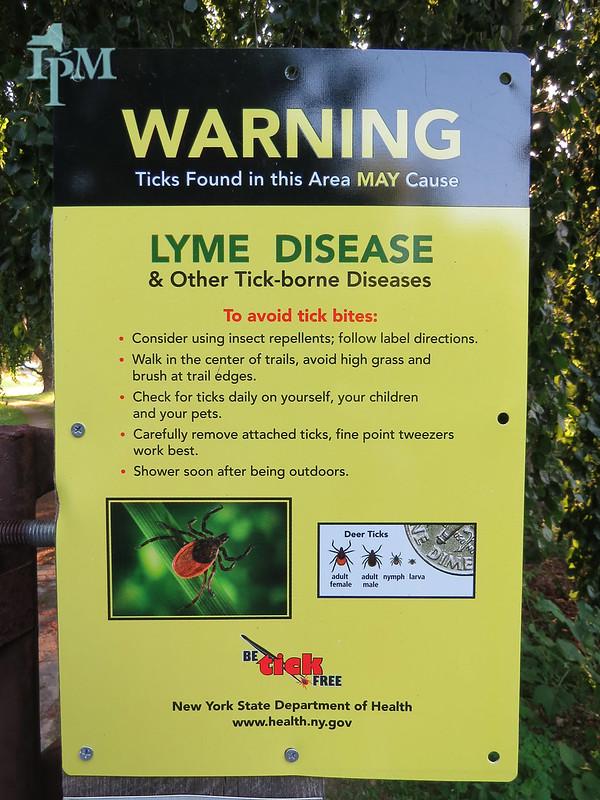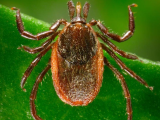A new survey of 1,351 parents in the United States finds that 68% of parents in high- and emerging-incidence states would vaccinate their children against Lyme disease. The study was published yesterday in Vaccine.
Each year, the Centers for Disease Control and Prevention (CDC) confirms 30,000 to 40,000 new cases of Lyme disease, making it the most common vector-borne disease in the United States. Once isolated to Northeastern states, ticks capable of spreading Lyme are now found across the country.
In the late 1990s, a vaccine called LYMErix was approved for use by the Food and Drug Administration, but failed to be recommended for wide use, in part because it could not be used in children. In September 2023, Pfizer and Valneva reported good phase 2 results for a new vaccine for use in people 5 years old and older, and a phase 3 trial is under way. The survey, though, was based on perceptions of a hypothetical Lyme vaccine.
The study questioned parents of children aged 5 to 18 years residing in states with high incidence of Lyme (Connecticut, Delaware, Maine, Maryland, Massachusetts, Minnesota, New Hampshire, New Jersey, New York, Pennsylvania, Rhode Island, Vermont, Virginia, Washington D.C., West Virginia, and Wisconsin) and emerging incidence of Lyme (Iowa, Ohio, Illinois, Indiana, Michigan, and North Carolina).
Slight preference for monoclonal antibody
Significantly more parents in emerging states (86.2%) than in high-incidence states (79.8%) had heard of Lyme disease; whereas, 48.6% in high-incidence states knew of someone who had contracted the disease, compared with 34.2% in the other group. Among all patients, 67.8% said their children were on a regular vaccine schedule.
Among both groups, 68.0% said they would have their child vaccinated against Lyme. The rates were 70.4% in high-incidence states and 63.6% in emerging-incidence states.
Among those who were unwilling or unsure of having their child get a vaccine, concern about long-term side effects (48.7%) and short-term side effects (38.8%) were among the most commonly cited reasons.
Willingness to get their child vaccinated against Lyme was associated with higher parental education, higher perceived risk Lyme disease, children reporting time outdoors daily and weekly, and a positive overall attitude about vaccines.
"Among those who were unwilling or unsure of having their child get an LD [Lyme disease] vaccine, concern about long-term side effects (48.7%) and short-term side effects (38.8%) were among the most commonly cited reasons," the authors said. Parents also showed a slight preference for a one-dose monoclonal antibody over a three-dose vaccine.














